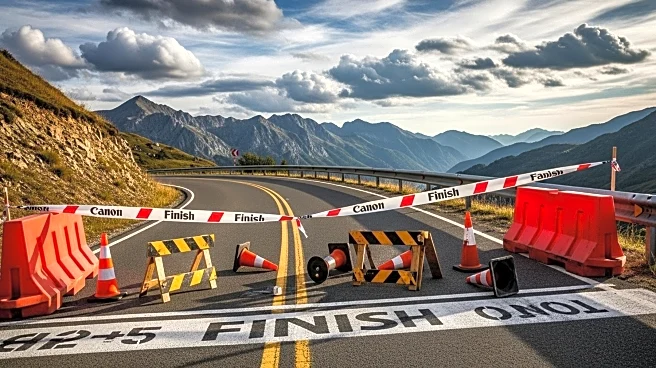What's Happening?
The 16th stage of the Spanish Vuelta was abruptly shortened after pro-Palestinian protesters blocked the road near the finish line in Poio, Spain. This marks the second instance of such disruptions during the three-week Grand Tour race. Race organizers decided to record the times of riders with 8 kilometers remaining, awarding Egan Bernal the stage win while Jonas Vingegaard maintained his overall lead. The protest involved hundreds of individuals gathering approximately 3 kilometers from the finish line, prompting officials to adjust the race's conclusion.
Why It's Important?
The interruption of the Spanish Vuelta highlights the intersection of sports and political activism, demonstrating how global events can impact major sporting competitions. The protests reflect ongoing tensions and the visibility of pro-Palestinian movements, potentially influencing public opinion and media coverage. For the cycling community, such disruptions can affect race strategies, athlete performance, and the overall integrity of the competition. Stakeholders, including sponsors and broadcasters, may face challenges in managing the implications of politically charged events on sports.
What's Next?
Race organizers and teams may need to reassess security measures and contingency plans for future stages to prevent similar disruptions. The incident could prompt discussions within the cycling community about balancing political expression and sporting events. Additionally, the broader implications for international sports events may include increased scrutiny on how they handle political protests and the potential need for dialogue between organizers and activist groups.









